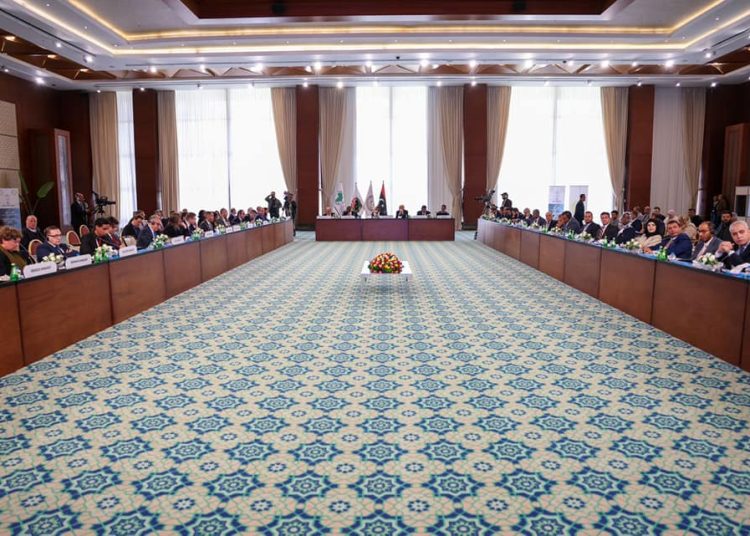Under the banner ‘‘Health Sector Reform’’, the Third Libya Development Partners Forum met in Tripoli yesterday.
The forum is held with the participation of the World Bank and the African Development Bank, and in the presence of Prime Minister Abd Alhamid Aldabaiba, the Governor of the Central Bank of Libya, Al-Saddek El-Kaber, the head of the Audit Bureau, Khaled Shakshak, and Mahmoud Al-Futaisi, Director General of the National Economic and Social Development Board (NESDB).
The event was also attended by several ambassadors, undersecretaries of ministries and directors of sovereign bodies and institutions.
Opening the forum, Minister of Finance Khaled Al-Mabrouk, emphasized the role of international partners in support for the government sector, providing advice and expertise.
For his part, the Prime Minister affirmed his support for the work of the forum, which is devoted to an important file that needs local and international efforts. He considering holding these meetings inside Libya as a message that Libya is recovering, and is working to organize and arrange international partnerships for Libyan institutions.
The Director of the Maghreb Department at the World Bank, Jesco Henschel, also confirmed the World Bank’s desire to develop technical cooperation with government institutions in Libya, and to build bridges of communication for the exchange of knowledge and experience.
For his part, the Director General of the NESDB, Mahmoud Al-Futaisi, told Libya Herald that the NESDB’s participation in this forum comes as the advisory body directly affiliated to the Prime Minister, who is at the same time the President of the Council, and in order to present what has been accomplished by the NESDB over the past period in various fields of economic and social development.
National strategy for health sector completed in 2022
Al-Futaisi added that among the most important development projects of local concern was the national strategy project for the development of the health sector, which was completed in 2022 with the participation of all public and private entities related to the Libyan health sector.
Al-Futaisi also emphasized that providing primary health care services to the population in Libya is one of the priorities that must be worked on during the next phase, in addition to other national strategies on the various economic and social levels.







